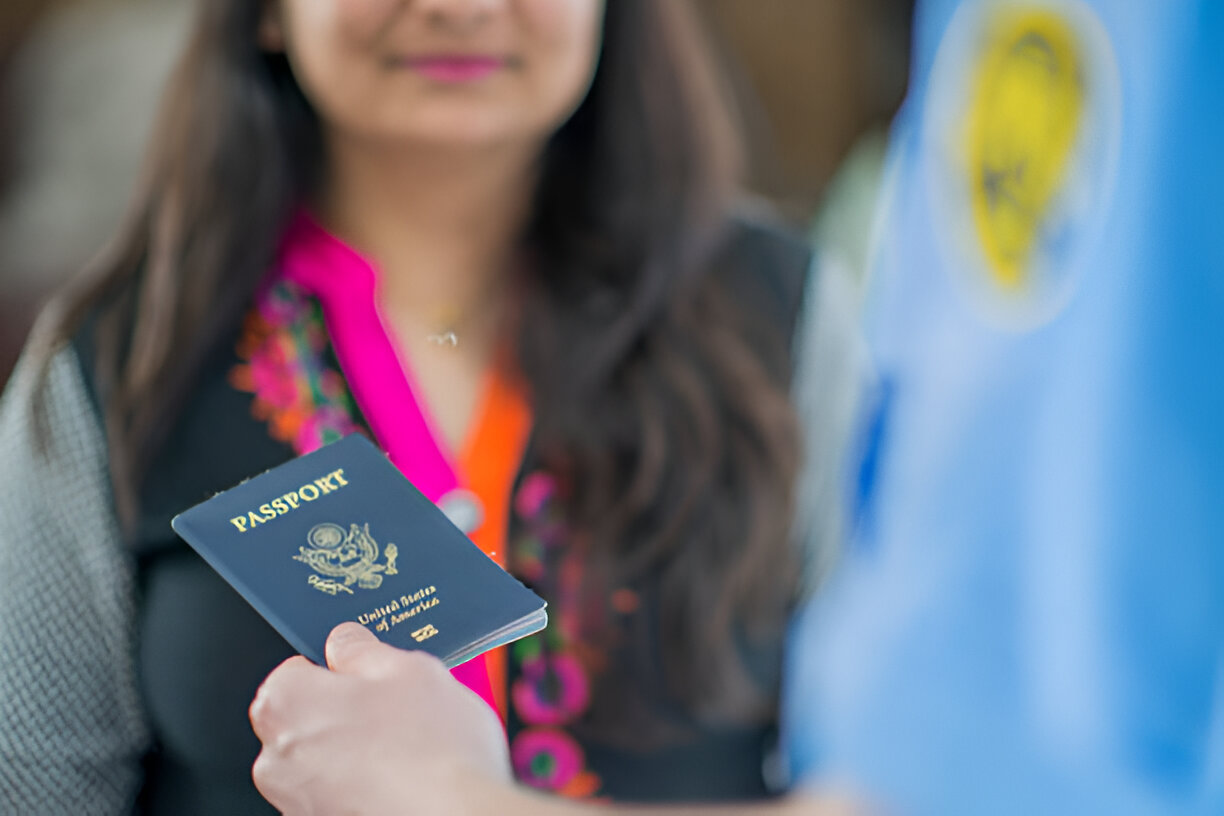International Student Can Earn in Canada Part Time, Per Month, Per Year, Per Hour While Studying
International students often wonder how much a student can earn in Canada per month or even per year while studying. Canada provides excellent opportunities for students to work part-time, helping them cover living expenses and gain valuable work experience.
A student earn in Canada per month approximately CAD 1,200 to CAD 1,600 during academic sessions when they are restricted to working 20 hours per week. During scheduled breaks, such as summer and winter holidays, a student earn per month in Canada can increase to CAD 2,400 to CAD 3,200, thanks to the option to work full-time.
On an hourly basis, a student can earn in Canada per hour between CAD 15 and CAD 20, depending on the province and type of job. This means a student earn per hour in Canada varies, with higher rates in provinces like Ontario or British Columbia. Over a year, combining part-time and full-time work, a student can earn in Canada per year between CAD 19,200 and CAD 25,600.
With proper planning, international students can balance work and study effectively while maximizing what a student can earn in Canada per month, per hour, and per year to support their lifestyle.
How Much a Student Can Earn in Canada Per Month
Many international students on a Pakistan Canada student visa wonder about their earning potential in Canada. On average, a student working part-time during academic sessions can earn between CAD 1,200 and CAD 1,600 per month. This is based on the standard 20-hour workweek allowed during studies. During holidays, when students can work full-time, monthly earnings can range from CAD 2,400 to CAD 3,200, depending on the province and job type.
For those planning to apply for a Canada student visa from Pakistan, it’s important to note that part-time earnings can help offset living expenses. Many students choose flexible jobs like retail, food service, or on-campus roles to manage work and studies effectively.
Working part-time while on a study visa from Pakistan to Canada not only helps financially but also offers valuable work experience, enhancing your resume for future career opportunities in Canada.
How Much a Student Can Earn in Canada Per Year
If you’re considering studying in Canada after FSC from Pakistan, knowing the annual earning potential is crucial for budgeting. International students can earn between CAD 19,200 and CAD 25,600 per year, combining part-time work during the academic year with full-time work during holidays.
This annual earning estimate depends on the hourly wage, which varies by province. For example, British Columbia and Ontario offer higher minimum wages compared to other provinces. With proper planning, students on a study visa in Canada from Pakistan can cover a significant portion of their living expenses.
It’s worth consulting with experts like study in Canada consultants in Pakistan to plan your finances better and understand additional costs, such as tuition and Canada study visa costs from Pakistan.
How Much a Student Can Earn in Canada Per Hour
For students holding a student visa of Canada from Pakistan, the hourly wage is a key factor in determining earnings. International students typically earn between CAD 15 and CAD 20 per hour, depending on the job type and location. Higher-paying roles, such as those in IT, customer service, or tutoring, may exceed this range.
Earning an hourly wage while on a study visa to Canada from Pakistan provides students with a reliable source of income to manage expenses like rent, groceries, and transportation. For detailed assistance on financial planning, you can contact study in Canada Pakistan consultants who specialize in guiding Pakistani students.
Understanding your potential hourly earnings and study visa requirements for Canada from Pakistan will help you prepare financially for your academic journey abroad.
Work Eligibility for International Students
Before diving into the numbers, it’s essential to understand the work eligibility requirements:
- Work Hours:
- During academic sessions, international students are allowed to work up to 20 hours per week off-campus.
- During scheduled breaks (e.g., summer or winter holidays), they can work full-time.
- Types of Jobs:
- On-campus jobs (e.g., research assistant, library staff).
- Off-campus jobs (e.g., retail, food service, tutoring).
- Work Permits:
- International students with a valid study permit are generally allowed to work without a separate work permit.
Hourly Earnings
The minimum wage in Canada varies by province. Here’s an approximate range as of 2025:
- British Columbia: CAD 16.75/hour
- Ontario: CAD 16.55/hour
- Quebec: CAD 15.25/hour
- Alberta: CAD 15.00/hour
On average, international students earn CAD 15–20 per hour, depending on the job and location.
Monthly Earnings
Let’s calculate the potential monthly earnings for part-time work during academic sessions:
- Work Hours per Month:
- 20 hours/week × 4 weeks = 80 hours/month.
- Earnings:
- At CAD 15/hour: CAD 1,200/month
- At CAD 20/hour: CAD 1,600/month
During breaks, students can work full-time (approximately 40 hours/week), doubling their monthly earnings to CAD 2,400–3,200.
Annual Earnings
Combining part-time work during academic months and full-time work during breaks:
- Academic Year Earnings (8 months):
- Part-time: CAD 1,200 × 8 = CAD 9,600 (at CAD 15/hour)
- Full-time (4 months of break): CAD 2,400 × 4 = CAD 9,600
- Total Annual Earnings:
- CAD 9,600 (part-time) + CAD 9,600 (full-time) = CAD 19,200/year
If earning at CAD 20/hour, the total annual income could be CAD 25,600.
Factors Affecting Earnings
- Location: Cities like Toronto and Vancouver offer higher wages but have a higher cost of living. Smaller cities may offer lower wages but more affordable living expenses.
- Type of Job: Specialized jobs (e.g., IT support, graphic design) often pay more than minimum wage.
- Experience: Students with prior work experience or advanced skills may secure better-paying jobs.
- Networking: Building connections can lead to higher-paying opportunities or internships.
Cost of Living vs. Earnings
While international students can earn a decent income, it’s essential to consider the cost of living in Canada:
- Housing: CAD 500–1,500/month (depending on location and type of accommodation).
- Food: CAD 200–400/month.
- Transportation: CAD 100–150/month.
- Miscellaneous: CAD 200–300/month.
On average, a student’s monthly expenses range from CAD 1,000 to 2,500, meaning part-time earnings may cover living expenses but leave little for savings.
Conclusion
International students in Canada can earn between CAD 15,000 and CAD 25,000 annually through part-time work while balancing their studies. While these earnings can offset living expenses, planning and budgeting are crucial to make the most of your time and resources in Canada.
By understanding the local job market, networking effectively, and improving job skills, students can maximize their earnings and gain valuable work experience in a competitive environment.
Here’s a compression table summarizing the earnings potential of international students in Canada, broken down by hourly, monthly, and yearly income.
| Category | During Academic Sessions (Part-Time, 20 hrs/week) | During Scheduled Breaks (Full-Time, 40 hrs/week) | Total Annual Earnings |
|---|---|---|---|
| Hourly Wage | CAD 15–20/hour | CAD 15–20/hour | – |
| Weekly Earnings | CAD 300–400/week | CAD 600–800/week | – |
| Monthly Earnings | CAD 1,200–1,600/month | CAD 2,400–3,200/month | – |
| Earnings for 8 Months | CAD 9,600–12,800 | – | CAD 9,600–12,800 (academic period only) |
| Earnings for 4 Months | – | CAD 9,600–12,800 | CAD 9,600–12,800 (break period only) |
| Total Annual Earnings | – | – | CAD 19,200–25,600/year |
How to Read the Table
- Hourly Wage: Shows the estimated income per hour based on Canada’s minimum wage (varies by province).
- Weekly and Monthly Earnings: Breaks down earnings during academic sessions (20 hours per week) and breaks (40 hours per week).
- Earnings for 8 Months (Academic Period): Represents the total income for the 8 months international students can only work part-time.
- Earnings for 4 Months (Break Period): Shows potential income during the 4 months of full-time work.
- Total Annual Earnings: Combines both academic and break period earnings to give a yearly estimate.
How much can an international student earn in Canada part-time?
An international student can earn in Canada part-time approximately CAD 1,200 to CAD 1,600 per month. This is based on the average hourly wage of CAD 15 to CAD 20 and the 20-hour weekly limit for part-time work during academic sessions. The specific earnings depend on the province, job type, and individual experience. Wondering how much a student can earn part-time in Canada? Jobs in retail, customer service, or campus roles often offer flexible hours and competitive pay.
How much money can international students earn in Canada per month?
On average, how much a student can earn in Canada per month depends on their hourly wage and work hours. For part-time work during studies, students can earn CAD 1,200 to CAD 1,600 per month. However, during breaks, when full-time work is allowed, how much a student can earn per month in Canada increases to CAD 2,400 to CAD 3,200. For those asking, “How much can international students earn in Canada?”—it largely depends on the location and the type of job.
How much can international students earn in Canada per year?
If you’re wondering how much an international student can earn in Canada per year, the total is approximately CAD 19,200 to CAD 25,600. This includes part-time earnings during academic sessions and full-time earnings during breaks. How much a student can earn in Canada per year depends on their ability to work consistently and find higher-paying opportunities in provinces with better wages.
How much can international students earn in Canada per hour?
For those asking, how much a student can earn in Canada per hour, the average hourly wage is between CAD 15 and CAD 20, depending on the province and the type of job. Jobs in British Columbia and Ontario often pay higher hourly rates compared to smaller provinces. So, how much can a student earn per hour in Canada? Higher-skilled roles like tutoring or IT support may offer wages above the standard rates.
How much money can students earn in Canada while studying?
Curious about how much money student can earn in Canada while studying? International students can earn part-time wages of CAD 1,200 to CAD 1,600 per month during academic sessions and CAD 2,400 to CAD 3,200 per month during breaks. This means how much we can earn in Canada while studying varies based on work hours, the job market, and individual effort. If you’re planning to work part-time, knowing how much student can earn in Canada while studying can help you plan your budget effectively.



